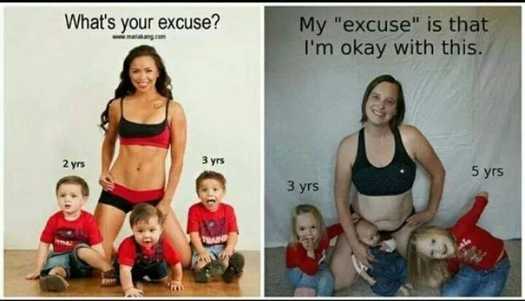Written by Sriraksha Raghavan
 “Women are other women’s worst enemy” is a phrase so commonly heard that it has been reduced to an overused cliché. This statement finds its roots in women comparing themselves to one another, which often results in hate. Yet, even if women do not hate other women, it is common for women to be ranked below that of the male counterparts. Why? Because men are thought to be more capable than women. Ideally, we could count on universal sisterhood and unanimously deny that perception but reality is far from it. Instead, what we can do is to question why such perception exists. Why do women undermine other women?
“Women are other women’s worst enemy” is a phrase so commonly heard that it has been reduced to an overused cliché. This statement finds its roots in women comparing themselves to one another, which often results in hate. Yet, even if women do not hate other women, it is common for women to be ranked below that of the male counterparts. Why? Because men are thought to be more capable than women. Ideally, we could count on universal sisterhood and unanimously deny that perception but reality is far from it. Instead, what we can do is to question why such perception exists. Why do women undermine other women?
Let’s start by taking a look at advertisements.
Turn on the television and a Nivea soap advertisement greets you. There is a woman. She strips and wets herself from the water spurting out from the shower head. With a soap on her body, she gushes over its miraculous abilities. She smiles at the camera and the advertisement ends.
Another advertisement follows. Men are cast to sell Movado watches. These watches symbolise “performance”, “strength” and “impact”, the advertisement says. In other words, masculinity is tied to success and power.
These two advertisements are just two examples of many. If you haven’t noticed by now, advertisements are gendered. On the one hand, they often use women to sell soaps, shampoos, home appliances – signaling the feminisation of the domestic sphere. On the other hand, men are cast to sell watches, cars, and other items – items that are symbolises power, fame and class.
On an everyday basis we are bombarded with stereotypes of what men and women are supposed to be like and we begin to believe it. What is more, it is easier to learn and internalise stereotypes when we start seeing these at a young age and do not know any better. Ultimately, media becomes a standard by which people assess how to behave in the world and learn what is appropriate.
What has this got to do with women fighting with each other, you ask? Perhaps the phrase “internalised misogyny” may help.
Misogyny refers to the dislike or ingrained prejudice against women. Internalised misogyny would then translate to how this concept is accepted and subsequently incorporated into our psyches. In other words, the phrase refers to the internalisation of these sexist comments and gender stereotypes, the often subconscious belief that they are true.
 In drama series, women talk ill about other women and are seen fighting over men. We know that such never-ending strings of fights seem unrealistic. Yet, we internalise and accept these images as the norm. In sum, we internalise the hate for other women.
In drama series, women talk ill about other women and are seen fighting over men. We know that such never-ending strings of fights seem unrealistic. Yet, we internalise and accept these images as the norm. In sum, we internalise the hate for other women.
The belief of prejudice against women is involuntary. It is not a conscious decision to think this way but it is actually a response to all the preconceived notions about women that society perpetuates.
We often do not realize that we are being bombarded with such images because they are so subtle. American cartoonist Alison Bechdel used her cartoon to come up with a test which is now called the Bechdel test. It requires a work of fiction to fulfill three criteria:-
There must be two women in the said work of fiction
They must talk to each other
They must talk about something other than a man.
The number of works that will fail to satisfy this criteria is staggering. With subtleties that can be so easily overlooked, stereotypes have actively proliferated to the extent that people cannot see beyond it.
A worldwide experiment called the ‘Goldberg Paradigm’ was conducted to assess if gender bias is real. Participants were asked to read an article which was supposedly written by a man and then evaluate it. Then the same article was circulated under the name of a woman, and the same people (both men and women) were asked to evaluate it again. It was seen that people graded the article higher when they thought it was a man writing it than when they thought it was a woman.
As social creatures, we are conditioned to follow certain norms in order to fit in. Gender stereotypes portrayed in the media, albeit merely constructed by fellow humans, can easily be internalised and reinforced. We need to educate ourselves and become aware of the stereotypes we are upholding or subjecting others to. We need to question why is the norm a norm. We need to question the kinds of prejudices that exist today. Awareness and subsequently, a conscious effort to not perpetuate these stereotypes and prejudices are first steps to build a better and freer world for humans – men and women alike – to live in.
About the Author: Sriraksha is a student with a passion for learning and believes that if you learn anything in depth, a passion for it will follow. She thinks that the best way to enrich one’s life is to enrich that of others and hopes to do that for a living one day.

 Retweeting this is close to writing the tweet. I barely know you, but I can tell from your tweets that you think this is funny, and it’s just a joke. To a tiny extent, it is. But that doesn’t make it harmless. The fact that you retweeted it allows your followers to see that you, an acquaintance of theirs, agree with its contents. This is no longer an “American thing”, nor is it that far off from their reality, because there you are, their classmate, their friend from church, or their neighbour, agreeing that girls are annoying and it’s terrible to be one. Suddenly, the tweet is no longer just hers. It is also yours. You have endorsed it and what it stands for.
Retweeting this is close to writing the tweet. I barely know you, but I can tell from your tweets that you think this is funny, and it’s just a joke. To a tiny extent, it is. But that doesn’t make it harmless. The fact that you retweeted it allows your followers to see that you, an acquaintance of theirs, agree with its contents. This is no longer an “American thing”, nor is it that far off from their reality, because there you are, their classmate, their friend from church, or their neighbour, agreeing that girls are annoying and it’s terrible to be one. Suddenly, the tweet is no longer just hers. It is also yours. You have endorsed it and what it stands for.

 Does this sound familiar? These statements are commonly directed towards fat people in attempts to control or police their bodies. Fat-shaming is the act of discriminating against a person because of their weight, and often involves publicly policing fat people’s appearance, behaviour, and attitude. We’ve all likely experienced fat-shaming as a victim, perpetrator or as both.
Does this sound familiar? These statements are commonly directed towards fat people in attempts to control or police their bodies. Fat-shaming is the act of discriminating against a person because of their weight, and often involves publicly policing fat people’s appearance, behaviour, and attitude. We’ve all likely experienced fat-shaming as a victim, perpetrator or as both. How is the policing of women’s body size misogynistic?
How is the policing of women’s body size misogynistic?